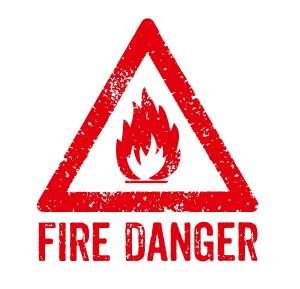Alcohol-based hand sanitizers raise fire hazard concerns

Last year saw a change in hygiene and how we conduct ourselves in the general public after the outbreak of a worldwide pandemic, COVID-19. This has led to alcohol-based sanitizers to be the norm of the day making them readily available since they are known to kill any known bacteria-causing infection.
These sanitizers have, however, been classified by The Occupational Health and Safety Administration (OSHA) as Class 1 highly-flammable liquid substance, making it a fire hazard.
Earlier on, concerns had been raised by the Ministry of Education in Kenya as to whether or not hand sanitizers were to be allowed in school. The Education Cabinet Secretary however said that large quantities were not to be allowed in schools and that only five liters were allowed and was to be handled by teachers for the purpose of general school population when in public places.
Image: CS Magoha in a class session. ( Source; kenyans.co.ke )
The CS later in a meeting with education stakeholders at Our Lady of Fatima Girls’ in Kariobangi North instructed teachers to confiscate all small bottle sanitizer from students.
Magoha noted that students were using sanitizers to start fires in school.” If any child has portable sanitizer it should be taken and kept and given when the child is leaving school.”
Additionally, hand sanitizer vapours are flammable and toxic. Alcohol-based hand sanitizer combusts to form Carbon Monoxide(CO) and Carbon 11 Oxide (CO2). CO is odorless, colorless and tasteless making it hard to notice.
Safety precautions for storage and usage of alcohol-based sanitizer
a)If sanitizer spills or released, all potential ignition sources must be immediately removed from the area to mitigate the possibility of a fire
b)Spilled sanitizer should be cleaned up immediately with water
c)Sanitizers should be stored away from all heat and ignition sources
d)Children should not be allowed to use sanitizers unless under the supervision of adults.
e)Sanitizers should not be allowed to come in touch with any oxidizing or reducing agents
f)Sanitizers should be stored in a cool place away from extremely hot temperatures
g)Sanitizers should not be stored in open areas that lead directly to them especially with areas that have many ignition points.
Feature Image; A fire hazard sign( Source;fireline.com)




